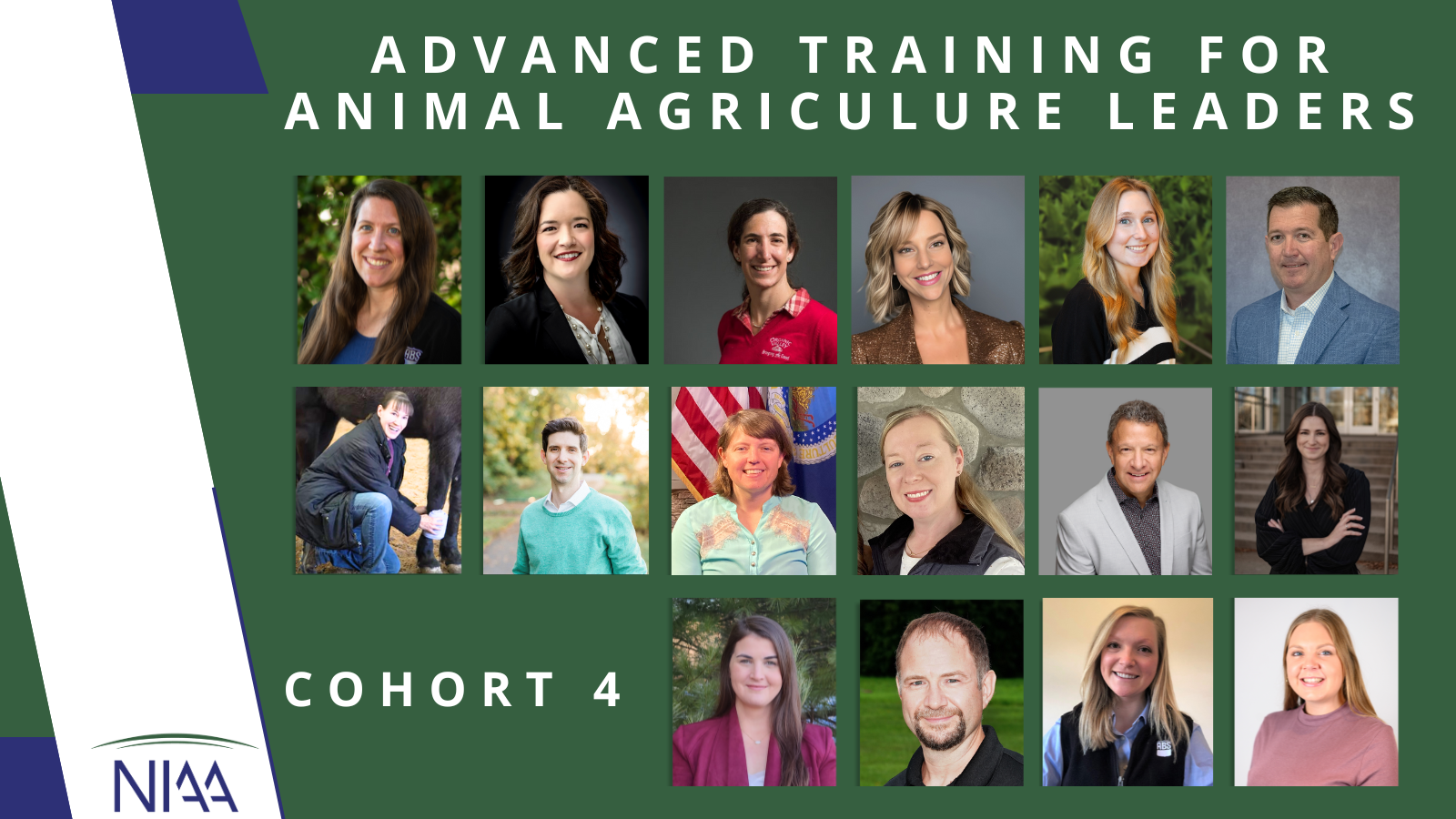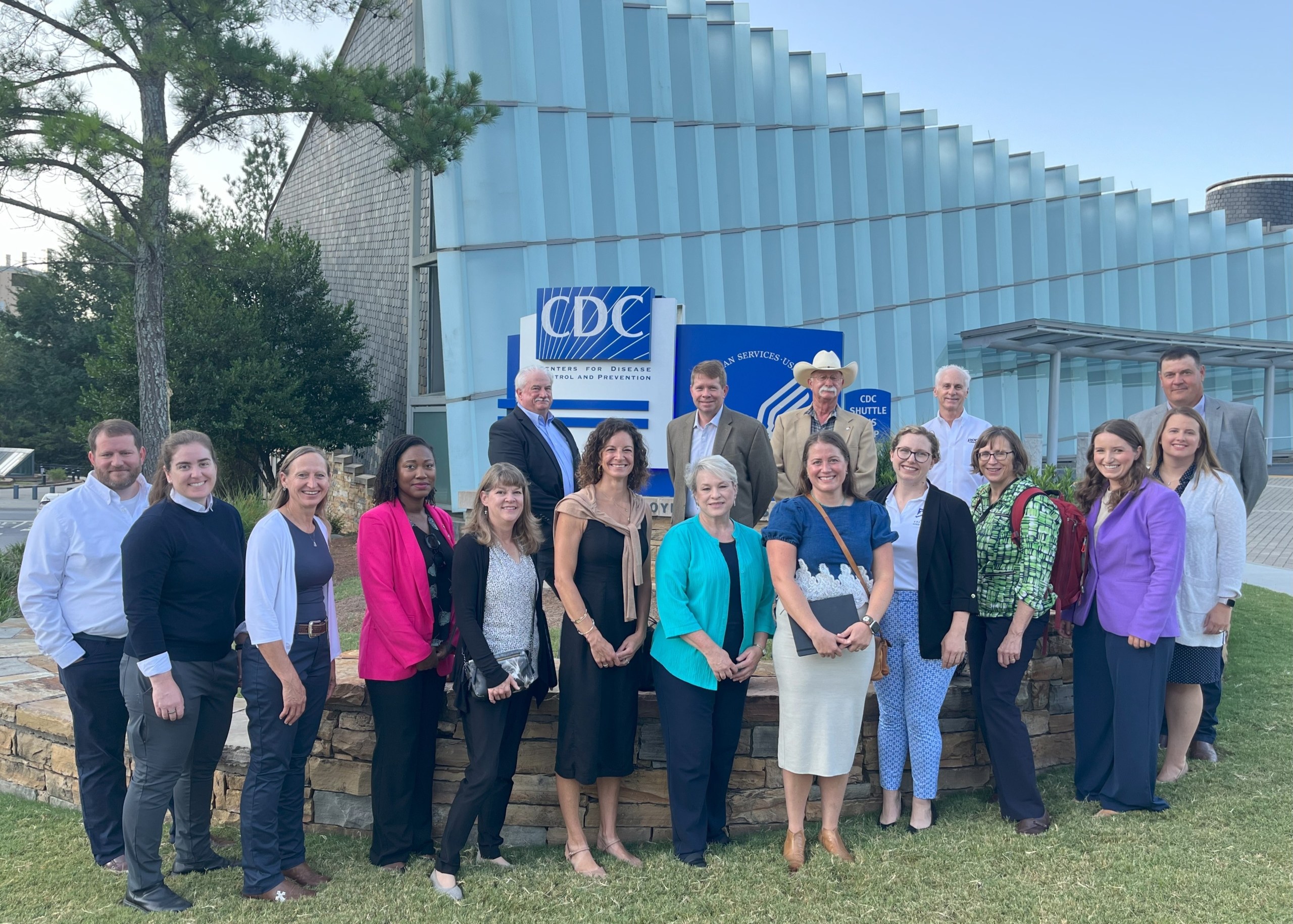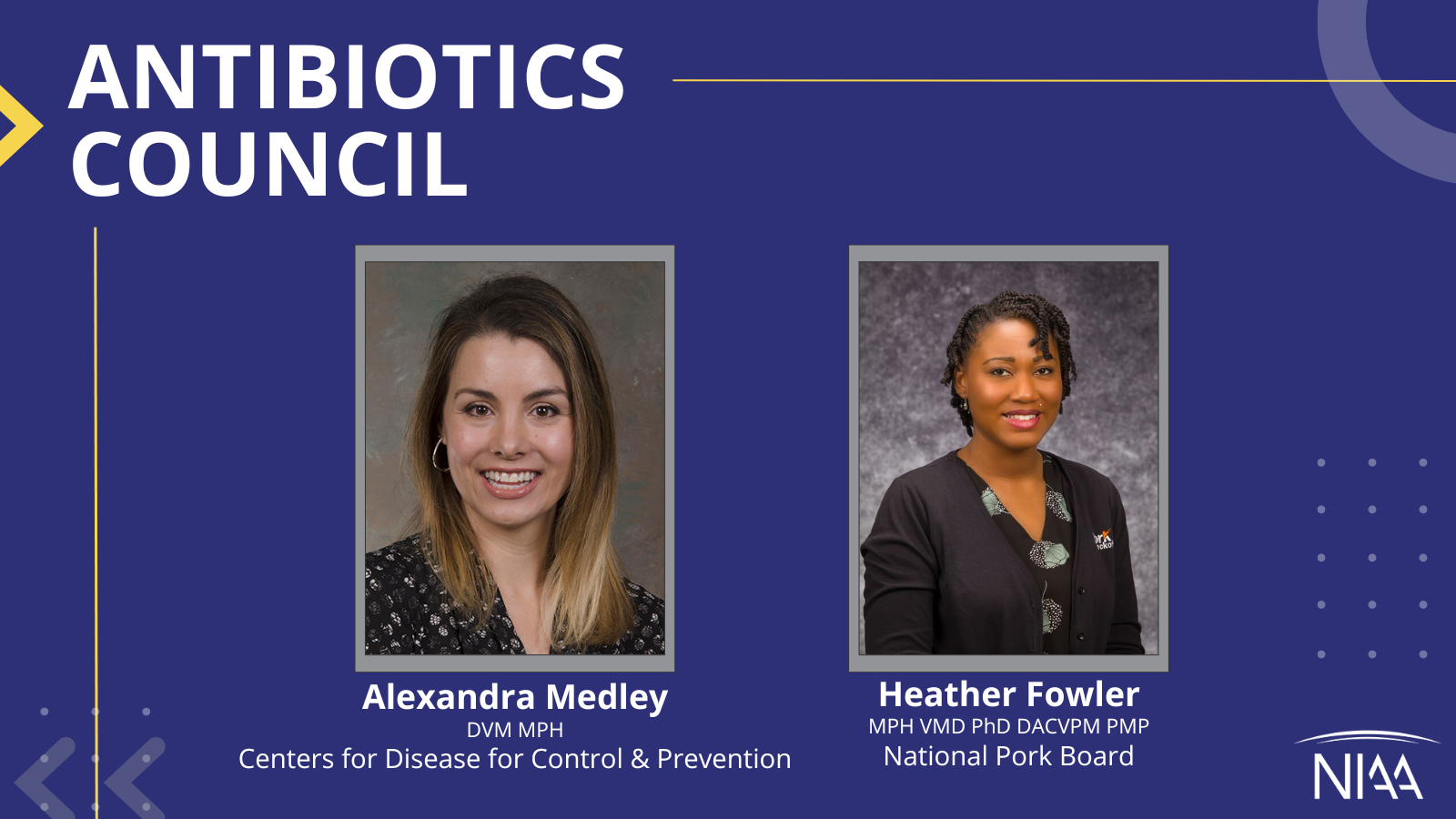Animal Agriculture Leaders Gather for Industry Preservation
Kansas City, Mo. (April 14, 2025) – Last week, the National Institute for Animal Agriculture (NIAA) hosted the 2025 Annual Conference – Securing Our Future: Don’t Just Talk…Act! in Kansas City, Missouri. More than 110 attendees focused on the future of animal agriculture and how to maintain trust throughout the value chain. Additionally, industry leaders were honored and new directors were elected to the NIAA board.
Animal agriculture benefits from those who consistently go above and beyond for the industry. NIAA recognizes those outstanding professionals each year at Annual Conference. The Chairman’s and President’s Awards recognize animal agriculture leaders who have been especially supportive, inspiring, and trusted by leaders within NIAA and have contributed significantly to its success. Animal Agriculture Advocates use their voice and platforms to push animal agriculture forward. The Meritorious Service Award is presented to animal agriculture leaders who have invested their career to advancing our sector and is the longest standing award – first presented in 1965. The 2024 honorees were:
- Chairman’s Award:
– Dr. Eric Moore, Director of Technical Services – Norbrook, Inc. - President’s Award
– Dr. Kaitlyn Briggs, Dairy Welfare Lead – fairlife, LLC - Advocate for Animal Agriculture Award
– U.S. Agriculture Partnership Fund - Meritorious Service Award
– Polly Ruhland, Senior Managing Director – FTI Consulting.
NIAA confirmed the following new board members during the annual membership meeting:
- Pierce Bennett, Michigan Farm Bureau
- Dr. Nathan Voris, Zoetis
- Dr. Mark Roozen, Kentucky Department of Agriculture
- Dr. Steve Strubberg, Missouri Department of Agriculture.
Jared Wareham – Horizon Venture Management, Kelly Loganbill – Bader Rutter, and Paul Koffman – Merck Animal Health were reconfirmed for their second term to the NIAA board of directors.
NIAA’s Annual Conference program began on Monday, April 7 with capstone presentations from Cohort 3 of the Advanced Training for Animal Agriculture Leaders. The presentation topics included Data Collection for a Healthier World, Responsible Use of Technology, Globalization in Animal Agriculture, and The Future of Animal Agriculture. Following the capstone presentations, NIAA Councils and Working Groups met with members to discuss the coming year and hosted speakers. Council meeting speakers included:
- Animal Disease Issues & Emergency Management
− Dr. Kate Dion, Iowa State University
Identifying biosecurity hazards through disease outbreak investigations
− Dr. Julia Herman, National Cattlemen’s Beef Association
Enhanced biosecurity planning resources for foot-and-mouth disease preparedness for cattle veterinarians & producers
− Dr. Megan Niederwerder, Swine Health Information Center
SHIC Update on Japanese Encephalitis Virus Prevention and Preparedness for the US Swine Industry
− Dr. Jason Lombard, Colorado State University
WALK, RUN , CRAWL- H5N1, what we have learned in dairy cattle this past year
− Dr. Jennifer Siembieda, USDA – APHIS
Overview of HPAI in Dairy Cattle - Animal Identification & Information Systems
− Garrett Girk, Kansas Department of Agriculture
A State’s Perspective on EID
− Callahan Grund, U.S. CattleTrace
The Progression of ID and Technology: How we can accomplish an Animal Disease Traceability System for the US Beef Cattle Industry.
Andy Curliss, National Pork Producers Council opened the agenda on Tuesday, April 8 with a fascinating review of the ballot initiatives across the U.S. and the efforts from activist groups campaigning against animal agriculture.
Danette Amstein from Midan Marketing shared the latest consumer insights from the protein sector, including the different types of consumers and their unique buying habits.
Julie Broadway from the American Horse Council led a License to Operate panel that included experiences and expertise from
- Rick Stott, Superior Farms
- Dr. Jim Heird, Texas A&M University
- Matt Durian, The American Royal
- J.J. Jones, NIAA
NIAA Board Chair, Chelsea Good moderated the Ag Legislation panel featuring association executives. Topics included upcoming association policy priorities, trade, tariffs, and the farm bill. The speakers featured, were:
- Michael Schumpp, The Meat Institute
- Julie Broadway, American Horse Council
- Andy Curlis, National Pork Producers Council
- Zach Helder, Kansas City Agricultural Business Council
- Justina Graff, U.S. House of Agriculture Committee.
Dr. Kaitlyn Briggs, fairlife, moderated a conversation with board members from the U.S. Ag Partnership Fund:
- Collin Peterson, Former Chairman of the US House Agriculture Committee
- Randy Russell, President of the Russell Group and former USDA Chief of Staff
- Lisa Van Doren, National Council of Farmer Cooperatives Vice President and Chief of Staff.
Joel Leftwich from Kansas Farm Bureau and the U.S. Agriculture Partnership Fund closed the day’s program with a closing challenge to the audience on how to move forward and get ahead of activist initiatives.
Two additional sessions were held on April 9. The American Sheep Industry Association hosted What’s Next After Scrapie Eradication? to discuss the next steps once Scrapie is declared eradicated in the U.S. NIAA hosted a meeting for awardees and stakeholders of the USDA National Animal Disease Preparedness & Response Program (NADPRP). After discussing the survey results from their project, NIAA hosted a panel featuring Dr. Tiffany Lee, Clemens Food Group, Dr. Julia Herman, NCBA, and Dr. Cheryl Eia, Iowa State University reviewing their experiences with program successes and opportunities.
Learn more about the award honorees, board members, the Advanced Training for Animal Agriculture Leaders, and upcoming NIAA events at www.animalagriculture.org/.




